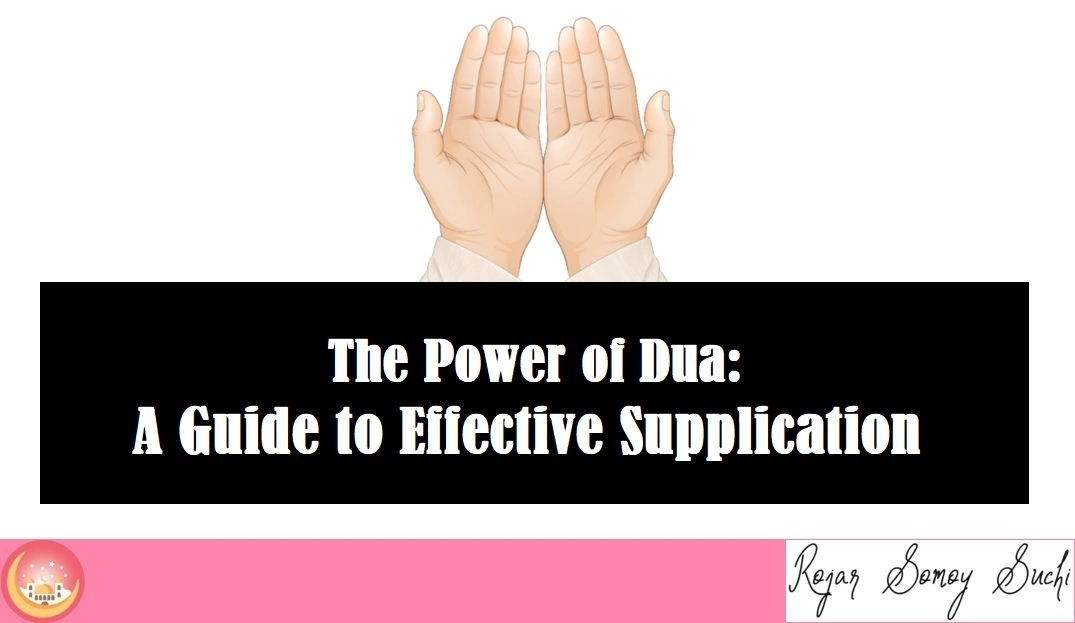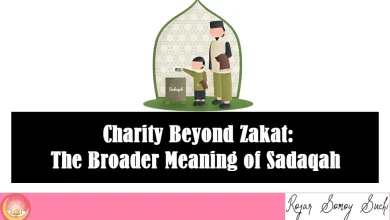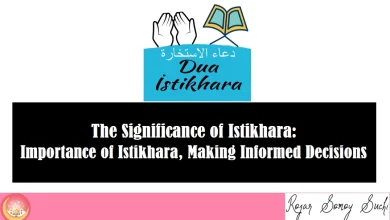
The Power of Dua: A Guide to Effective Supplication: Dua, the act of calling upon Allah, is one of the most profound ways a believer can connect with the Divine. It is a direct, unmediated communication with the Creator, transcending barriers of time, place, or circumstance. The power of dua lies not only in its ability to transform external situations but also in its potential to reshape the heart, mind, and soul. In this guide, we explore how to harness the power of dua effectively and with sincerity, ensuring it becomes a transformative practice in your life.
Understanding the Essence of Dua
Dua is more than a mere request; it is an expression of humility, faith, and reliance on Allah. It acknowledges our limitations as human beings and affirms Allah’s infinite wisdom, mercy, and power. When we raise our hands in supplication, we admit our dependence on the One who controls all affairs. This act of submission fosters a deep sense of peace and trust, even when the outcome of our dua is not immediately visible.
The Quran repeatedly emphasizes the importance of dua, as Allah says:
“And your Lord says, ‘Call upon Me; I will respond to you.’” (Quran 40:60)
This verse is a profound reminder that Allah not only listens but also responds to every sincere supplication. The promise of response is a reassurance for believers that no dua goes unnoticed, even if the answer comes in ways we do not expect.
The Power of Sincerity
The effectiveness of a dua lies in its sincerity. When we supplicate with genuine intention and a heart full of conviction, our words carry a weight that transcends mere utterance. A sincere dua is one that is free from arrogance, filled with hope, and anchored in a deep belief in Allah’s mercy and wisdom.
To cultivate sincerity in dua:
- Reflect on your relationship with Allah. Ask yourself why you are making the dua and what it means to rely on Him fully.
- Be specific and personal.
- Pour out your heart, sharing your fears, hopes, and dreams with the One who knows them better than you do.
- Avoid haste. Allah’s timeline is perfect, and true sincerity comes with patience and trust in His divine plan.
The Etiquette of Dua
While Allah accepts supplications made in any state or situation, approaching dua with proper etiquette enhances its effectiveness and deepens the spiritual experience. Consider the following guidelines:
- Begin with Praise and Gratitude: Start your dua by glorifying Allah and thanking Him for His countless blessings. Recognize His greatness and mercy, as this sets the tone for a heartfelt supplication.
- Send Salawat on the Prophet (peace be upon him): Including blessings on the Prophet Muhammad (peace be upon him) is a sunnah that enriches your dua and increases its likelihood of acceptance.
- Face the Qiblah and Raise Your Hands: These physical gestures demonstrate humility and submission, aligning your body with the sincerity of your heart.
- Be Persistent: Repeat your dua frequently, with unwavering faith. The Prophet Muhammad (peace be upon him) taught us to persist in our supplications and not lose hope, even when the response seems delayed.
- Avoid Sinful Intentions: Ensure that your dua is for purposes that are halal and pleasing to Allah. Purity of intention is essential for a dua’s acceptance.
- Seek the Best Times: While dua is accepted at any time, certain moments are especially blessed, such as during the last third of the night, between the adhan and iqamah, also before the iftar and on Fridays during the hour before Maghrib.
Common Misconceptions About Dua
A common misunderstanding is equating the acceptance of a dua with receiving exactly what we asked for. Allah’s response to our supplications may take different forms: He may grant our request, delay it for a better time, or substitute it with something even more beneficial. Each response is rooted in His perfect knowledge and mercy.
Sometimes, people feel discouraged when they don’t see immediate results from their dua. It is important to remember that the act of making dua itself is a blessing and an act of worship. As the Prophet Muhammad (peace be upon him) said:
“There is no Muslim who calls upon Allah with a dua that does not contain any sin or severing of family ties, but Allah will give him one of three things: He will either immediately respond to his dua, store it for him in the Hereafter, or avert harm from him equivalent to it.” (Tirmidhi)
This hadith reminds us that no dua is ever wasted. Trusting in Allah’s wisdom and timing is essential for maintaining faith and perseverance.
The Transformative Power of Dua
Dua has the unique ability to transform not only external circumstances but also our internal state. When we regularly engage in dua, we cultivate patience, gratitude, and reliance on Allah. It shifts our perspective from a sense of entitlement to an attitude of humility and trust.
Moreover, dua strengthens our relationship with Allah, deepening our spiritual awareness and drawing us closer to Him. It serves as a reminder that, no matter how overwhelming life may seem, we are never alone. With dua, we have a constant lifeline to the Creator, who is always near.
Conclusion
The Power of Dua: [A Guide to Effective Supplication] is immeasurable. It is a gift from Allah that enables us to seek His guidance, mercy, and blessings in every aspect of our lives. By understanding its essence, practicing sincerity, and adhering to its etiquettes, we can unlock the true potential of dua as a transformative force.
As you embark on this spiritual practice, remember that Allah’s response is always in your best interest, even when it is not immediately apparent. Trust in His wisdom, persist in your supplications, and cherish the profound connection that dua fosters with your Creator. In this lies the ultimate success, both in this world and the Hereafter.





